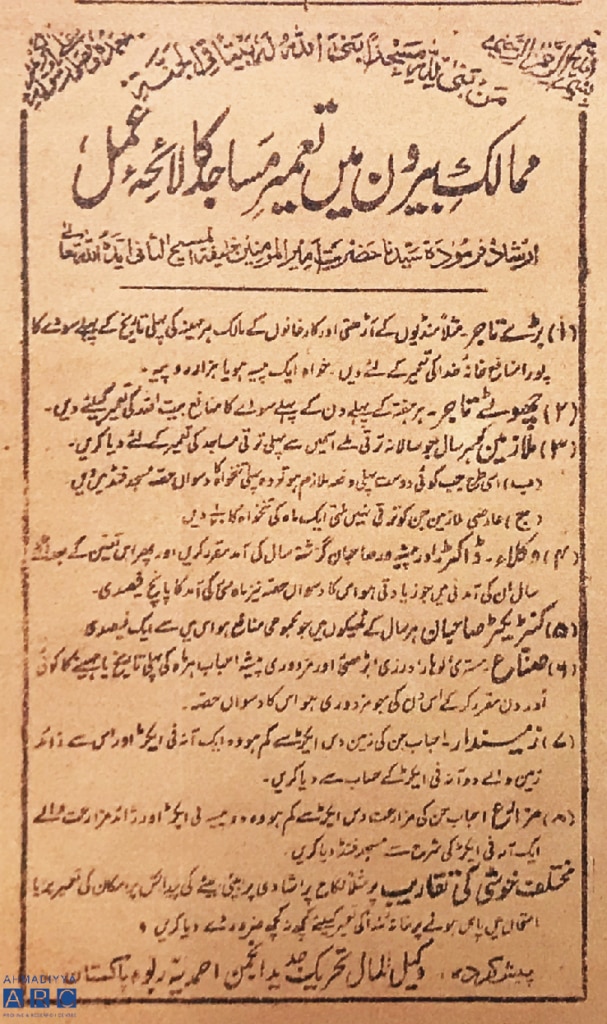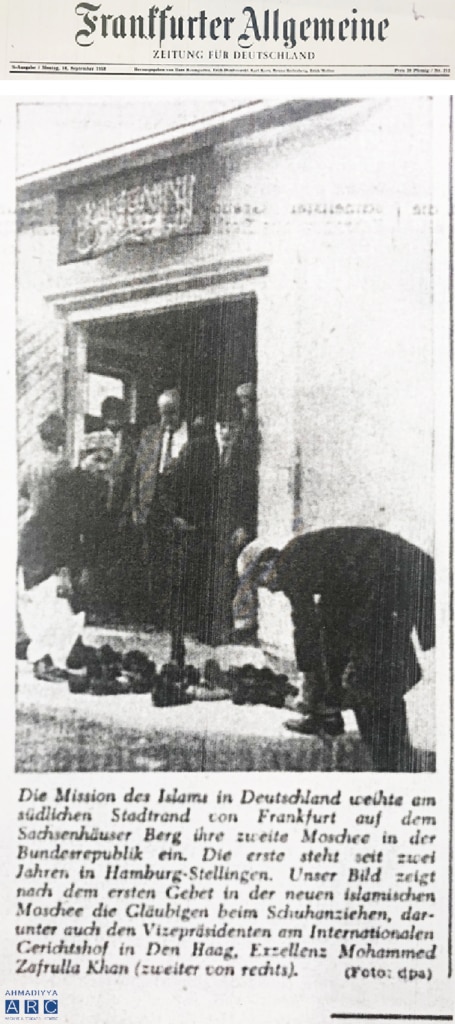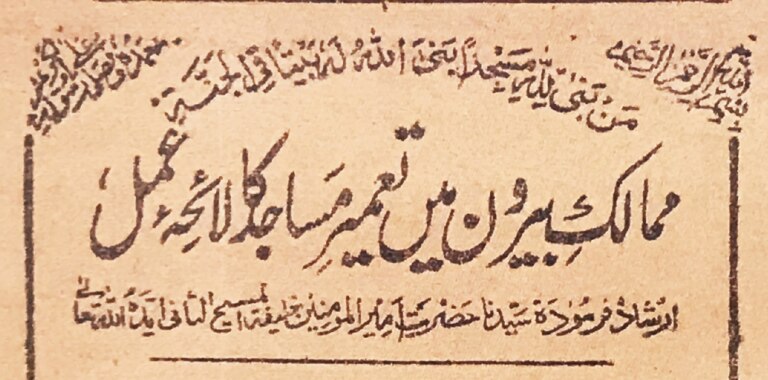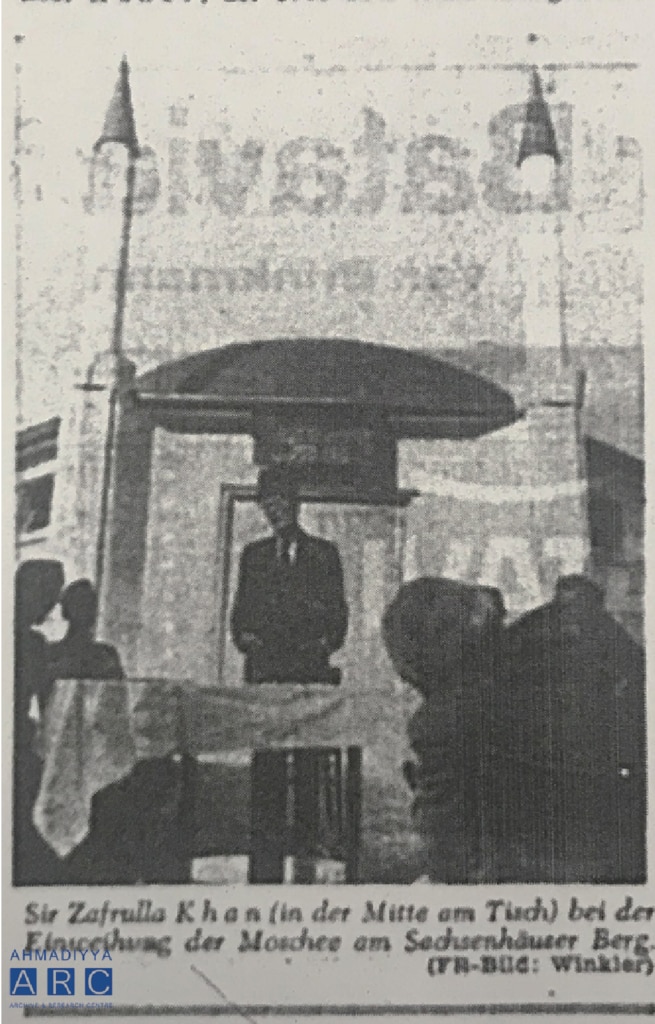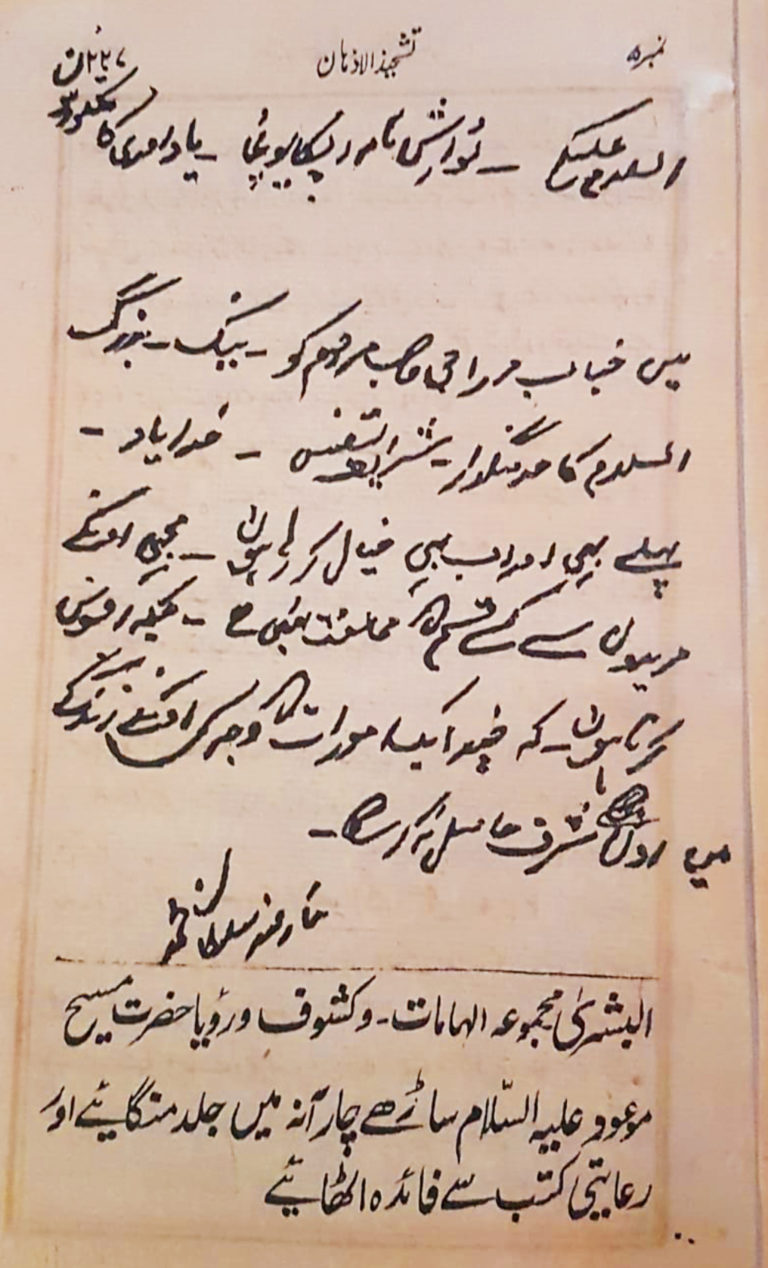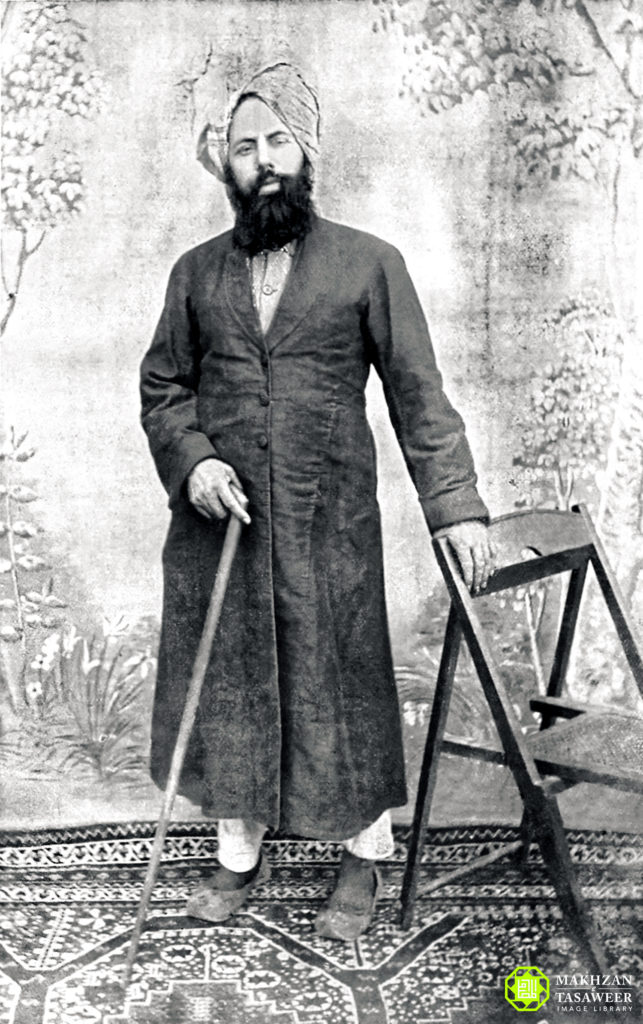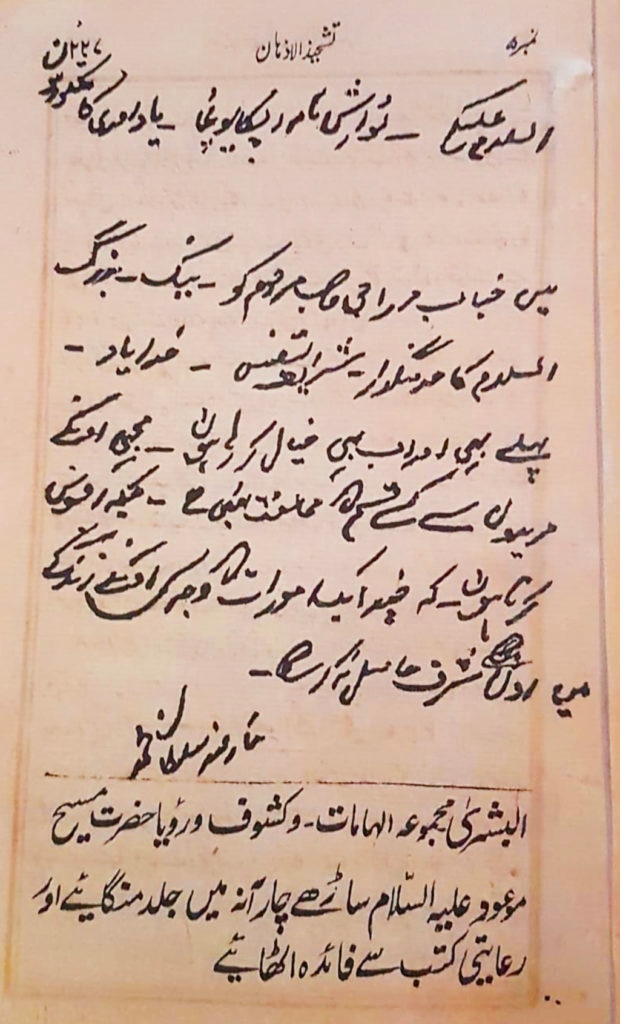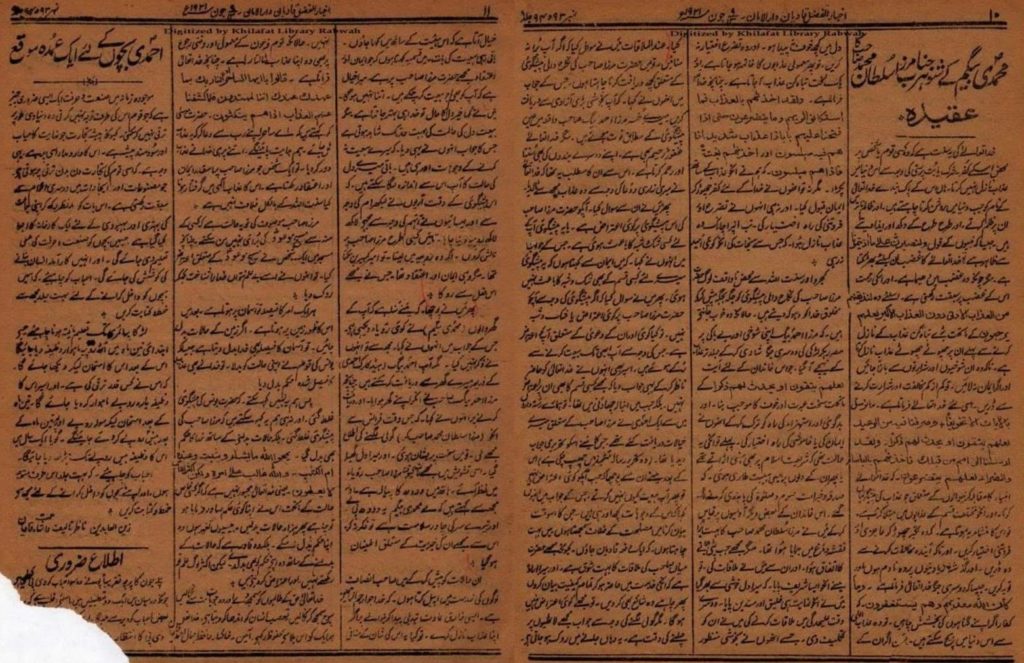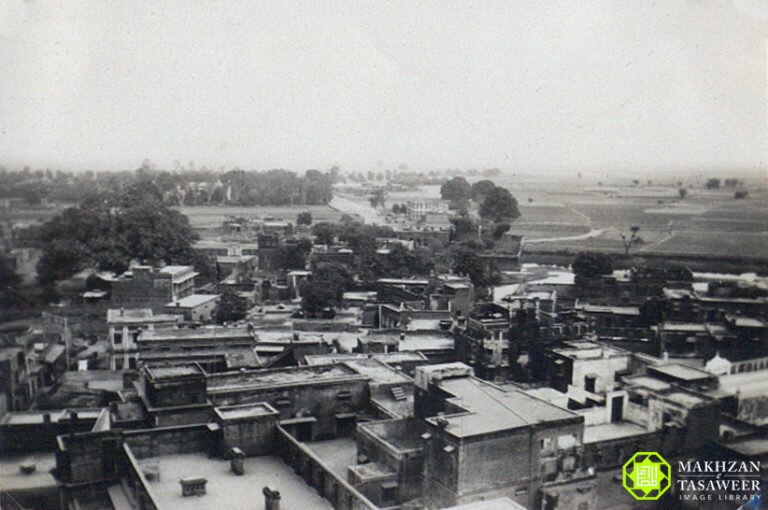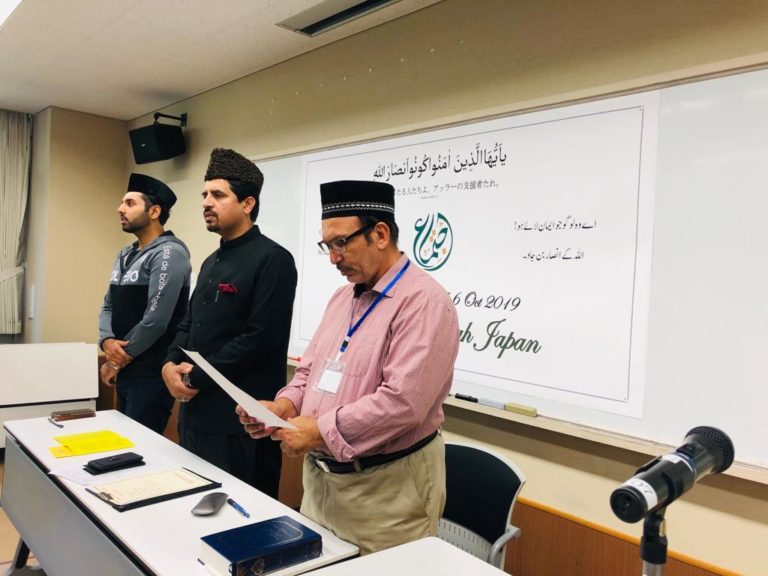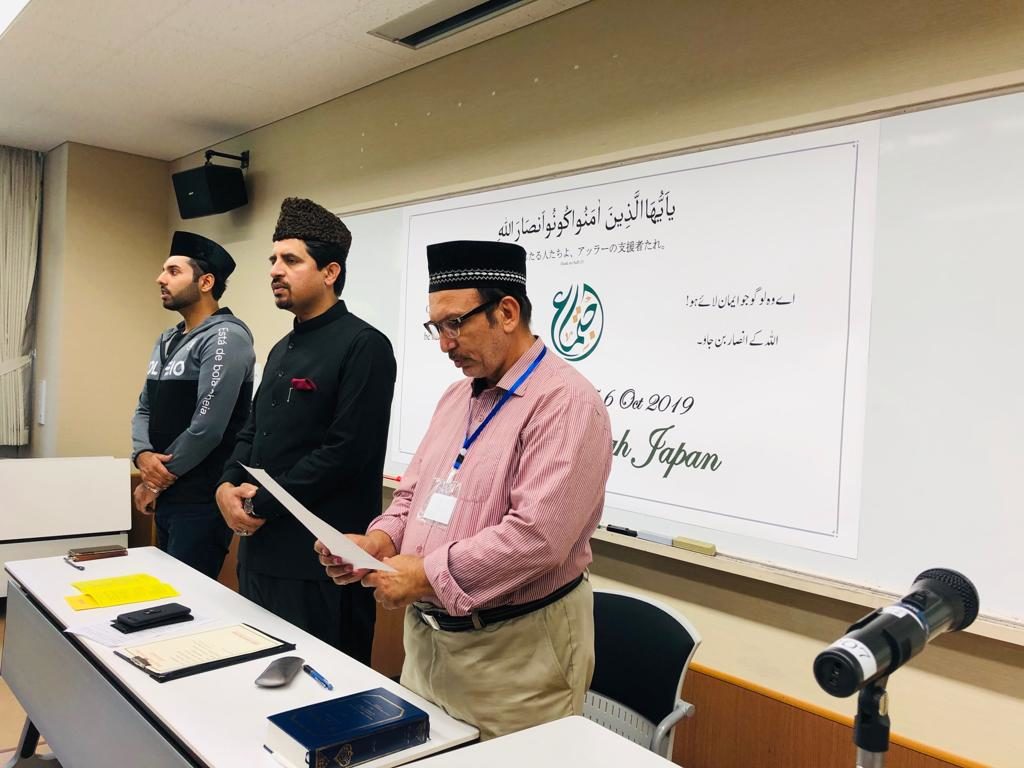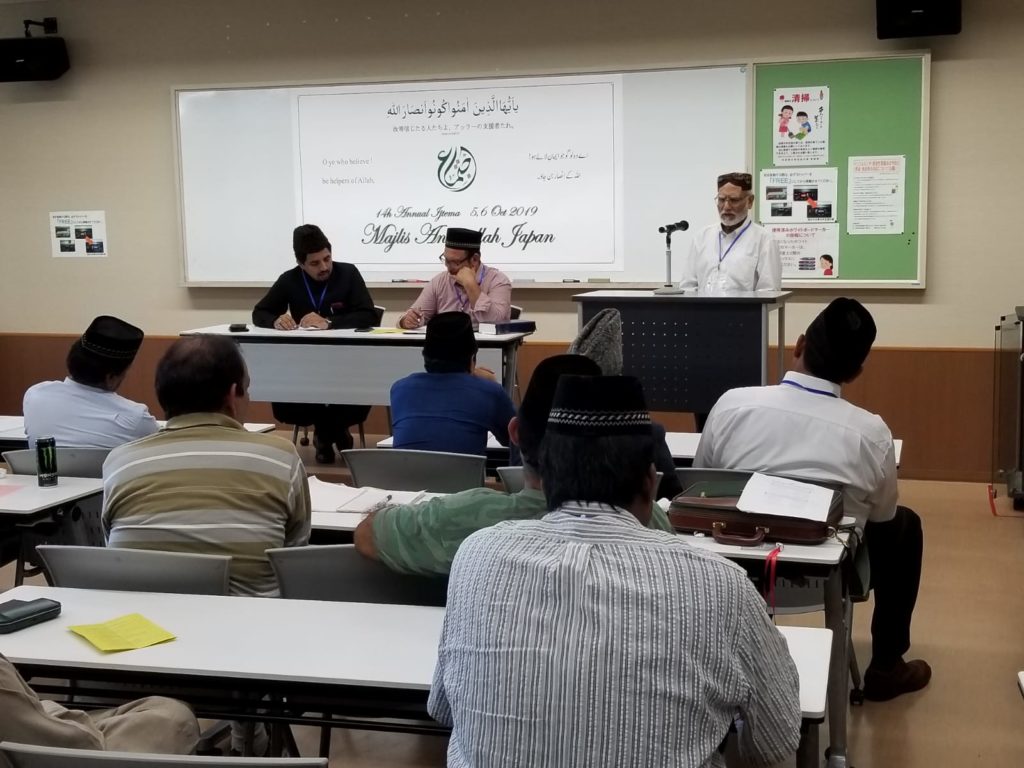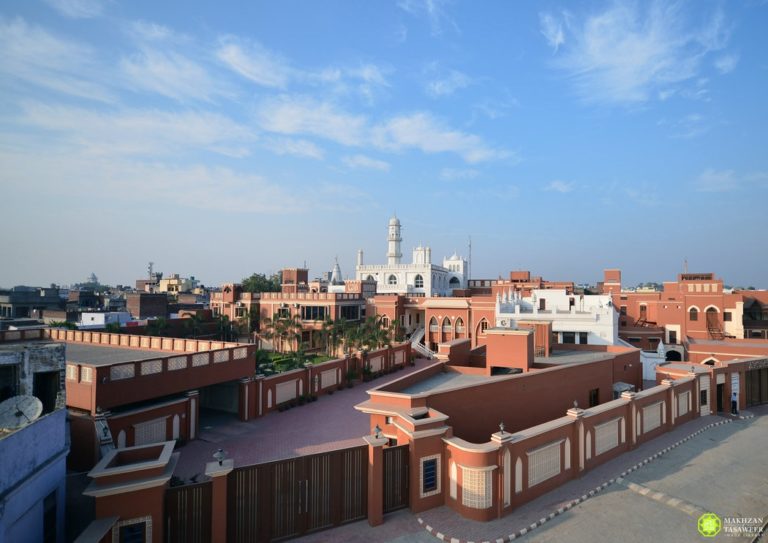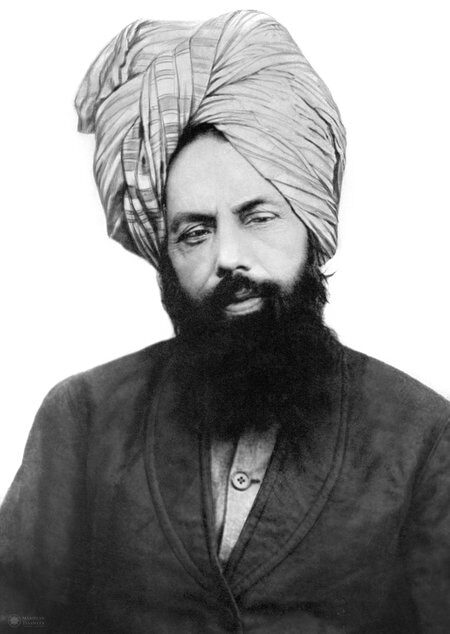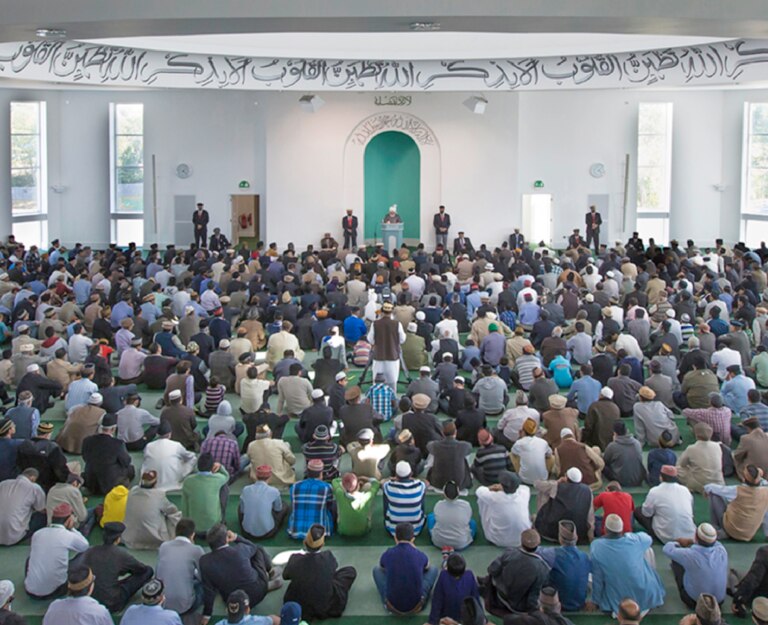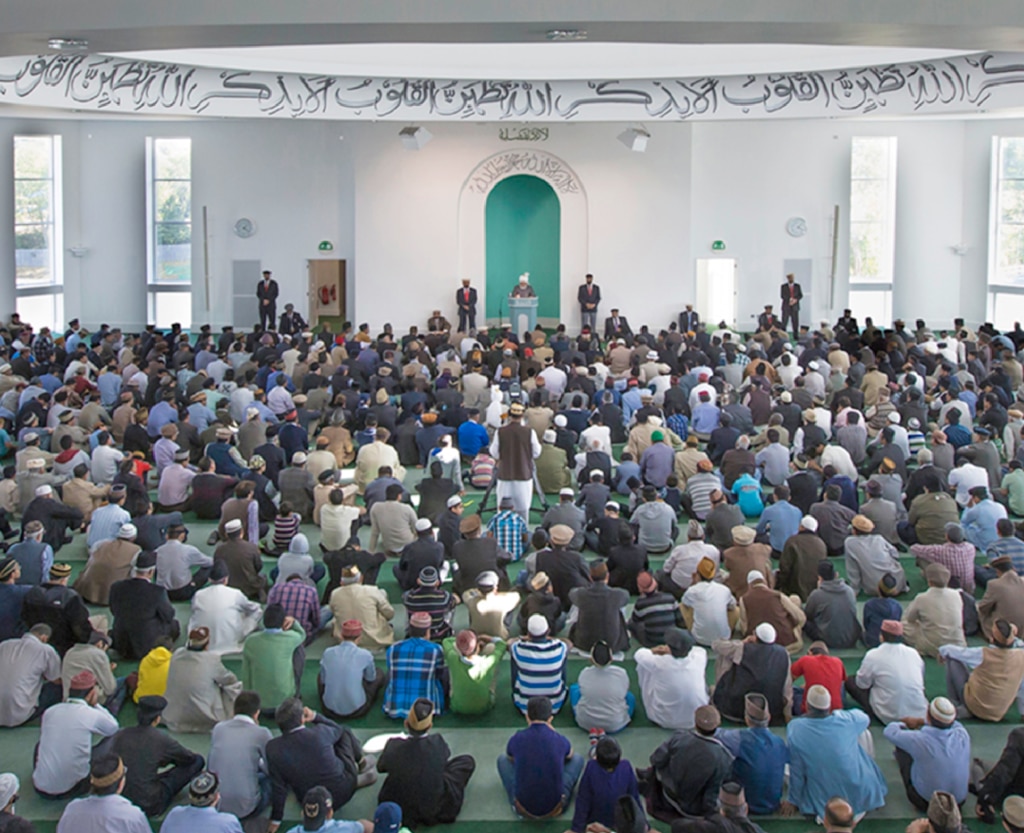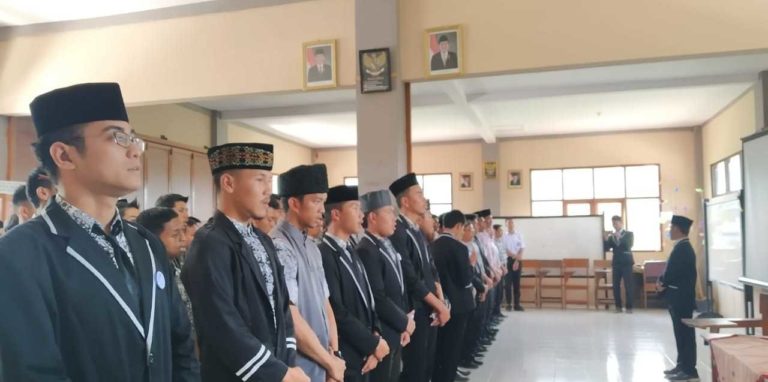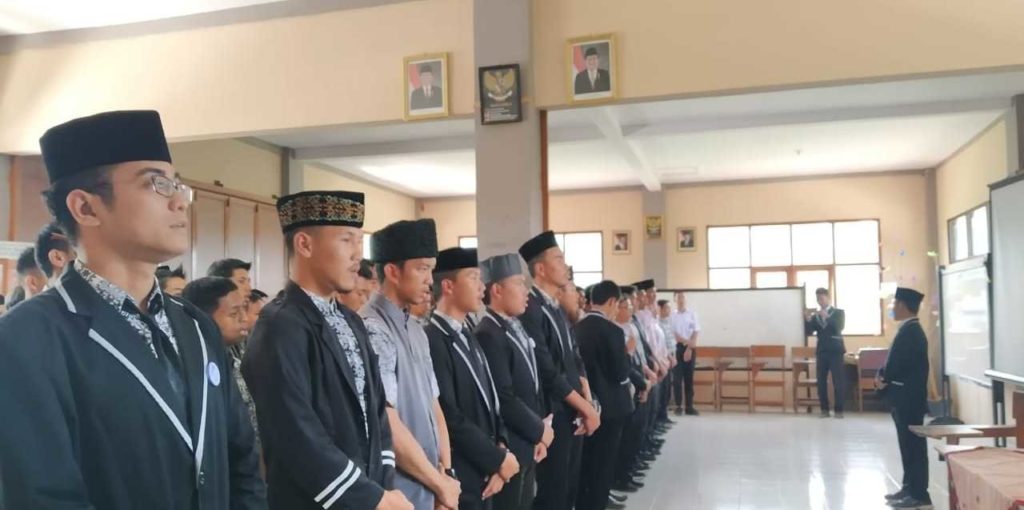Friday Sermon
20 September 2019
Men of Excellence
After reciting the Tashahud, Ta‘awuz, and Surah al-Fatihah, Hazrat Khalifatul Masih Vaa stated:
In this
series of the accounts of the lives of the Badri companions, I will begin today
with the account of Hazrat Yazidra bin Ruqaish. Hazrat Yazidra
belonged to the Banu Asad bin Khuzaimah tribe of the Quraish. Hazrat Yazidra
was a confederate of the Banu Abd ash-Shams (Al-Sirat al-Nabawiyyah li Ibn
Hisham, p. 460, Dar-ul-Kutub al-Ilmiyyah, Beirut, 2001). Some have also
reported his name as Arbad, however, this is incorrect. (Usdul Ghaba,
Vol. 5, p. 452, Yazidra bin Ruqaish, Dar-ul-Kutub al-Ilmiyyah,
Beirut, 2008)
Hazrat Yazid’sra father’s name was Ruqaish
bin Riyab and his title was Abu Khalid. Hazrat Yazidra participated
in all of the battles alongside the Holy Prophetsa, including the
battles of Badr, Uhud and Khandaq.
Hazrat Yazidra killed Amr bin Sufyan during
the Battle of Badr, who was a member of the Tay tribe. (Al-Tabaqaat-ul-Kubra
li ibn Sa‘d, Vol. 3, p. 50, Yazidra bin Ruqaish, Dar-e-Ihyaa
Al-Turath Al-Arabiy, 1996) (Al-Sirat al-Nabawiyyah li Ibn Hisham, p.
480, Dar-ul-Kutub al-Ilmiyyah, Beirut, 2001)
One of Hazrat Yazid’sra brother’s name was
Hazrat Saeedra bin Ruqaish, who migrated from Mecca to Medina along
with his family and is counted among the foremost Muhajireen [those
Muslims who migrated from Mecca to Medina]. (Usdul Ghaba, Vol. 2, p.
475, Saeedbin Ruqaish, Dar-ul-Kutub al-Ilmiyyah, Beirut, 2008)
One of Hazrat Yazid’sra brother’s name was
Hazrat Abd ar-Rahmanra bin Ruqaish, who participated in the Battle
of Uhud. (Al-Tabaqaat-ul-Kubra li ibn Sa‘d, Vol. 4, p. 370, Yazidra
bin Ruqaish, Dar-e-Ihyaa Al-Turath Al-Arabiy, 1996)
One of Hazrat Yazid’sra sister’s name was
Hazrat Aminahra bint Ruqaish, who accepted Islam early on in Mecca.
She also migrated to Medina along with her family. (Al-Tabaqaat-ul-Kubra
li ibn Sa‘d, Vol. 3, p. 371, Yazidra bin Ruqaish,
Dar-e-Ihyaa Al-Turath Al-Arabiy, 1996)
Hazrat Yazidra passed away on the occasion
of the Battle of Yamama in 12 AH. (Al-Tabaqaat-ul-Kubra li ibn Sa‘d, Vol.
3, p. 50, Yazidra bin Ruqaish, Dar-e-Ihyaa Al-Turath Al-Arabiy,
1996)
Although I have previously given brief details of this
battle, but some further details are as follows:
The Battle of Yamama took place in 11 AH during the
Khilafat of Hazrat Abu Bakrra. According to some historians, it took
place in 12 AH. This battle was fought against Musailamah Kazzab at a place
called Yamama. Hazrat Abu Bakrra sent an army under the leadership
of Hazrat Ikramahra bin Abi Jahl to fight Musailamah. He also sent
another army under the leadership of Hazrat Shurahbeelra bin Hasanah
in order to assist him. Hazrat Ikrimahra entered into battle before
the arrival of Hazrat Shurabeelra so that victory could be
attributed to him, however, he was defeated by Musailamah. When Hazrat
Shurahbeelra came to know of this defeat, he set up camp on the way.
Hazrat Ikramahra wrote to Hazrat Abu Bkarra and informed
him of the incident. Hazrat Abu Bakrra replied:
“We should not meet one another under these
circumstances and you should also not return to Medina in this current state
lest it spread cowardice among the people, rather you should take your army to
fight against the rebels from among the people of Oman and Mahra. After that, you
should go and fight against the rebels of Yemen and Hadramaut.”
Hazrat Abu Bakrra wrote to Hazrat Shurahbeelra saying,
“You should remain where you are until Hazrat Khalidra bin Waleed
arrives.” Hazrat Abu Bakrra deployed Hazrat Khalidra in
order to fight Musailamah Kazzab and sent a large party of Muhajireenand
Ansarwith him. The leader of the party of the Ansar was Hazrat Sabitra
bin Qais while the leader of the party of the Muhajireen was Hazrat Abu
Huzaifahra and Hazrat Zaidra bin Khattab. Hazrat Shurahbeelra
started to fight Musailamah before the arrival of Hazrat Khalidra
and was defeated. Hazrat Abu Bakrra sent further reinforcement under
the leadership of Hazrat Saleetra to assist Hazrat Khalidra
to prevent any attack from behind the armies.
Hazrat Abu Bakrra used to say:
“I do not wish to utilise the Badri companions. I want
to leave them in a state that they meet Allah the Almighty while peacefully
observing righteous deeds. Allah the Almighty can remove far greater
difficulties and hardships than even this simply due to their blessings and the
blessings of other pious individuals, and as a result they do not physically
need to help.”
Nevertheless, they also participated due to the
compelling circumstances at the time. However, the opinion of Hazrat Umarra
was in contrast to this and he would utilise the Badri companions for the army
etc. In any case, the size of the Muslim army in this battle was 13,000,
whereas the size of Musailamah’s army is stated as 40,000.
A man by the name Nahaar-ur-Rijaal bin Unfuwa was with
Musailamah Kazzab. He once came to the Holy Prophetsa and learnt the
Holy Quran and religious matters. The Holy Prophetsa sent him to the
people of Yamama as a religious teacher in order to refute Musailamah Kazzab’s
claim to prophethood. When he went there, he became an apostate and bore
testimony to the fact that he had heard the Holy Prophetsa say;
(which was a false testimony) that Musailamah had, God forbid, been made a
prophet alongside him.
Nonetheless, when people abandon religion even today,
it is their custom to level such false and incorrect allegations. In any case,
the apostasy of this individual had much more negative impact on Musailamah’s
tribe of Banu Hanifa in comparison to Musailamah’s claim to prophethood. The
reason for this was that he had been sent for their moral training and people
were also influenced by him. At the time when he said such things, Musailamah’s
claim to prophethood was not very impactful. However, people began to be
influenced after he made these statements. Everyone accepted his testimony and
subsequently began to obey Musailamah. Furthermore, they said to him that he
should write a letter to the Holy Prophetsa stating that if he did
not obey him, they would support him in opposing the Holy Prophetsa.
This treacherous claim of theirs was in fact the fundamental reason for war.
In the incident that is being mentioned, Hazrat Abu
Bakrra sent Hazrat Khalidra to fight Musailamah. It is
stated that when Musailamah became aware of the fact that Hazrat Khalidra
was approaching, he set up his camp in the area of Uqraba and called people for
his support. People started coming to him in great numbers. In the meantime,
Muja’a bin Murara set out with a party, which was captured by the Muslims.
Hazrat Khalidra killed Muja‘a’s companions and kept Muja‘a alive. He
had set out for war as he was a reputable individual among the tribe of Banu
Hanifa. Their leader was not killed, but instead he was made a prisoner.
When he was captured, Musailamah’s son, Shurahbeel,
incited their tribe and said:
“If you are defeated today, your women will be made
into bondswomen and they will be taken advantage of without entering into
marriage. Therefore, today, you must show absolute courage for the sake of your
honour and dignity and you must protect your women.”
Nevertheless, the war broke out; the flag of the
Muhajireen was carried by Hazrat Salimra, the freed slave of
Huzaifahra, but before him taking the flag, it was with Abdullah bin
Hafs, who was martyred. The flag of the Ansar was carried by Hazrat Sabitra
bin Qais. A fierce battle ensued, the likes of which the Muslims had not
experienced before. The Muslims retreated during this battle and the people of
Banu Hanifa advanced in order to free Muja‘a, who had been imprisoned by Hazrat
Khalidra. Subsequently, they marched and advanced towards the camp
of Hazrat Khalidra bin Waleed. At that time, the wife of Hazrat Khalidra
was inside the camp. These people intended to kill Hazrat Khalid’sra
wife, upon which Muja‘a said that he had granted her protection and he
prevented them from killing her. Muja‘a then told them to attack the men, upon
which they advanced ahead. The battle intensified once again and all of the
tribes of Banu Hanifa launched a ferocious attack. During this battle, at times
the Muslims had the upper hand, but then at other times, the disbelievers would
gain ascendency in the battle. Honourable companions such as Hazrat Salimra,
Hazrat Abu Huzaifahra and Hazrat Zaidra bin Khattab were
martyred during this battle. When Hazrat Khalidra observed this
state of the Muslims, he ordered each tribe to group together, in order to
assess the situation and gauge where the Muslims were being attacked from.
Similarly, they re-arranged the army rows for battle upon which the Muslims
began to say to one another that on this day, they feel ashamed to retreat. In
other words, they felt humiliated upon witnessing their condition.
Muslims had not faced a greater difficulty than this
day. Musailamah was still in his place and was the central figure for the
disbelievers. Hazrat Khalidra realised that until Musailamah had not
been not killed, the war would not come to an end. Subsequently, Hazrat Khalidra
advanced forward and requested to fight in the form of duels by raising the
slogan of “Ya Muhammada” which was the tradition during the battle in
those days. Subsequently, whoever accepted the challenge and stepped into the battlefield
was killed, which became a catalyst for the Muslims. Following this, Hazrat
Khalidra called out for Musailamah, however, he did not step forward
and ran away. He was compelled to seek refuge in his orchard along with his
companions and he sealed the doors of this orchard. The Muslims encircled the
orchard and Hazrat Barara bin Malik said, “O Muslims! Lift me over
the wall and into the orchard.” He was a very brave and courageous individual.
The Muslims replied that they were unable to do so. However, Hazrat Barara
did not accept this and insisted that they ought to get him into this orchard.
Hence, the Muslims helped him in climbing the wall of the garden to enter it,
and he opened the gate from inside.
The Muslims entered the orchard, and another fierce
battle took place. Wahshi killed Musailamah. Wahshi is the same person who had
martyred Hazrat Hamzahra, the uncle of the Holy Prophetsa.
Nevertheless, according to one narration, Wahshi and another Ansari killed
Musailamah together. Wahshi launched his spear towards Musailamah, and the
Ansari advanced towards Musailamah with his sword. Both of them attacked
Musailamah at the same time, and for this reason, Wahshi used to say later,
“Only God knows whose attack caused Musailamah’s death.”
Hazrat Abdullah bin Umarra narrates that
someone announced in a loud voice, “An African slave has killed Musailamah.”
Therefore, it is very likely that Wahshi killed him.
Hazrat Khalidra found out about the
location of Musailamah’s body through Muja‘a. Muja‘a said to Hazrat Khalidra:
“The people who came to fight with the Muslims were
impetuous and inexperienced. However, currently the fort is full of skilful
soldiers. You should agree to a treaty with me on their behalf. The Muslims
would incur a greater loss if a battle was to ensue now.”
He sought to deceive them and Hazrat Khalidra
entered a treaty with Muja‘a on the condition that the Muslims would spare
their lives and nothing will be said to them, and they would not be taken as
prisoners. However, the Muslims would gain all of their possessions. Muja‘a,
who was a shrewd individual, stated, “I will go to the people of the fort and
will return after seeking their opinion on this matter.” Musailamah had already
been killed, which had weakened the strength of the opposition, however,
Muja‘a’s shrewdness benefited the disbelievers.
Upon entering the fort, he found no one other than
women, children, elderly and the weak. He planned a deceptive move by making
the women put on amour and instructed them to stand on the castle walls and
raise the slogans for battle until his return. He returned to Hazrat Khalidra
and stated:
“The people of the fort did not agree to the condition
on which you based our treaty (which was that their lives would be spared but
the Muslims would take all their possessions). Some of them are expressing
their disagreement visibly on the castle walls. I cannot take responsibility
for their actions as they are not in my control.”
When Hazrat Khalidra looked towards the
castle, he observed that its walls were lined with soldiers. These in fact were
women who were dressed as soldiers as a part of his scheme. The Muslims had
suffered great losses during this battle which had become prolonged. The
Muslims desired to swiftly return after their victory. Hence, Hazrat Khalidra
agreed to a treaty on the condition that the possession of all the gold,
silver, livestock and half of the female and male slaves would be given to them.
According to one narration, he agreed to the treaty on the condition of a
quarter of the prisoners.
In this battle, 360 Muhajireen and Ansar from Medina
were martyred. Aside from those from Medina, 300 Muhajreen were martyred. From
the Banu Hanifa tribe, 7,000 disbelievers were killed in the plains of Aqraba,
7,000 were killed in the orchard and 7,000 people who ran away from the orchard
were killed in the chase after them. When this army returned to Medina, Hazrat
Umarra enquired from his son, Hazrat Abdullahra, “Why did
you not attain martyrdom before Zaidra? Zaidra has been
martyred and you are still alive. Why did you not hide your face from me?”
Hazrat Abdullahra replied, “Hazrat Zaidra prayed for
martyrdom from Allah the Almighty and He bestowed it upon him. I also sought
after it but was not successful.”
In the same year, after a large number of Companions
were martyred in the battle of Yamama, Hazrat Abu Bakrra ordered for
the Holy Quran to be collated at one place, in order to preserve it. These were
the details regarding the Battle of Yamama. (Al-Kamil Fi Al-Tarikh,
Vol. 2, pp. 218-223, Dar-ul-Kutub Al-Ilmiyyah, Beirut, 2006), (Tarikh
Al-Tabari, Vol. 2, pp. 300-310, Dar-ul-Fikr, Beirut, 2002), (Tarikh ibn
Khuldoon, Vol. 3, pt. 1, p. 231, Dar-ul-Ishaat, Karachi, 2003)
Now I shall speak about a companion named Hazrat
Abdullahra bin Makhrama. His title was Abu Muhammad, and he belonged
to the Banu Aamir bin Lui tribe. He was also called Abdullah Akbar as well. He
was one of the companions who accepted Islam early on. His father’s name was
Makhrama bin Abdul Uzza and his mother’s name was Bahnana bint Safwan. In
regard to his children, it is mentioned that one of his son, Masahik who was
the son of Zainab bint Suraqa, the wife of Hazrat Abdullahra bin
Makhrama.
Hazrat Abdullahra bin Makhrama was among
those companions who accepted Islam in its early days. He had the honour of
migrating twice, one migration was towards Abyssinia and the second one towards
Medina. Ibn-e-Ishaaq has mentioned Hazrat Abdullahra bin Makhrama
among those companions who migrated to Abyssinia with Hazrat Jafarra.
Yunus bin Bukair, Salma and Bukai have recorded this saying of Ibn-e-Ishaaq in
which there is mention of Hazrat Abdullahra bin Makhrama’s migration
to Abyssinia.
After migrating to Medina, Hazrat Abdullahra
bin Makhrama resided in the house of Hazrat Khulthumra bin Hidam.
The Holy Prophetsa established a bond of brotherhood between Hazrat
Abdullahra bin Makhrama and Hazrat Farwahra bin Amr
Ansari. Hazrat Abdullahra bin Makhrama participated in the Battle of
Badr as well as all the battles that took place after. He was 30 years old at
the time of the Battle of Badr. When he was martyred at the Battle of Yamama,
during the Khilafat of Hazrat Abu Bakrra, at that time he was 41
years old. (Al-Tabaqaat-ul-Kubra li ibn Sa‘d, Vol. 3, pp. 308-309,
Dar-ul-Kutub al-Ilmiyyah, Beirut, 1990), (Usdul Ghaba, Vol. 3, pp.
377-388, Atiyyah bin Nuwairahra, Dar-ul-Kutub al-Ilmiyyah, Beirut,
2008)
Hazrat Abdullahra bin Makhrama had an
extraordinary level of passion to attain the status of martyrdom. He would pray
to God Almighty that he remain alive until he had witnessed a wound on every
joint of his body in the way of God Almighty. Subsequently, during the Battle
of Yamamah, he suffered injuries on many of his joints as a result of which he
attained the status of martyrdom. (Al-Isaba Fi Tamyeez Al-Sahaba, Vol.
4, p. 193, Dar-ul-Fikr, Beirut, 2001)
Hazrat Abdullahra bin Makhrama was
extremely devoted to worship and would fervently pray even in his youth. Hazrat
Ibn Umarra relates:
“In the year in which the Battle of Yamamah took
place, Hazrat Abdullahra bin Makhrama, Hazrat Salimra,
who was the freed slave of Hazrat Abu Hudhaifahra, and I were all
together. All three of us would take turns to graze the goats and we also had
to stand guard for protection of the provisions for the army. It was my turn to
graze the goats on the day the Battle of Yamamah began. When I returned from
grazing the goats, I saw Hazrat Abdullahra bin Makhrama wounded and
lying on the ground of the battlefield. I stood by him and he said, ‘O Abdullah
bin Umarra! Have those who are fasting ended their fast?’ (it was
evening). I replied in the affirmative upon which he asked for some water to be
poured into his shield, so that he could break his fast.’”
Thus, even during the battle, he was observing the
fast. Hazrat Abdullahra bin Umar states that he went to fetch some
water but when he returned, Hazrat Abdullahra bin Makhrama had
passed away. (Usdul Ghaba, Vol. 3, p. 377, Abdullahra bin
Makhrama, Dar-ul-Kutub al-Ilmiyyah, Beirut, 2008), (Sair Al-Sahaba, Vol.
2, p. 570, Abdullahra bin Makhrama, Dar-Isha’at, Karachi)
The next companion I will mention is Hazrat Amrra
bin Ma‘bad. Hazrat Amrra bin Ma‘bad’s name is also reported as Umairra
bin Ma‘bad. His father’s name was Ma‘bad bin Az‘ar. Hazrat Amrra bin
Ma‘bad belonged to the Banu Zubaya branch of the Aus tribe of the Ansar. (Al-Sirat
al-Nabawiyyah li Ibn Hisham, p. 465, Baab Al-Ansar wa man ma’ahum,
Dar-ul-Kutub al-Ilmiyyah, Beirut, 2001)
Hazrat Amrra bin Ma‘bad participated in all
the battles alongside the Holy Prophetsa, including the Battle of
Badr, Uhud and Khandaq. Hazrat Amrra bin Ma‘bad was among the 100
companions who stood their ground during the Battle of Hunain and valiantly
fought and as a result of which God Almighty Himself became responsible for
their provisions (Al-Tabaqaat-ul-Kubra li ibn Sa‘d, Vol. 3, p. 353,
Umairra bin Ma’bad Dar-ul-Kutub al-Ilmiyyah, Beirut, 2012). This is
because they stood by with the Holy Prophetsa.
According to one narration, Hazrat Abdullah bin Umarra
states, “On the day of Hunain, our condition was such that two of the parties
among the Muslims retreated and there were not even as much as a hundred people
who remained with the Holy Prophetsa.” (Sunan Al-Tirmidhi,
Abwab-ul-Jihad, Hadith no. 1689)
There are varying opinions in relation to the number
of companions who remained firmly stood alongside the Holy Prophetsa.
Some estimate that it was between 80 and a 100. (Subul Al-Huda Wa Al-Rishaad,
Vol. 5, p. 484, Dar-e-Ihyaa Al-Turath, Cairo, 1992)
However, others state 100, but nonetheless they were
very few in number.
The next companion I will mention is Hazrat Naumanra
bin Malik. Hazrat Naumanra bin Malik’s name has also been mentioned
as Nauman bin Qauqal. Imam Bukhari has recorded his name as Ibn Qauqal. Allama
Badr-ul-Din Aini, who is a scholar, writes in the commentary of Bukhari
that the complete name of Ibn Qauqal was Naumanra bin Malik bin
Thalaba bin Asram and Qauqal was the title of Thalaba or Asram. Since Hazrat
Naumanra bin Malik was known by his grandfather, hence he was called
Nauman bin Qauqal. (Sahih Bukhari, Kitabun Nikah, Kitab-ul-Jihad Wa
Al-Sair, Bab Al-Kafir Yaqtulu Al-Muslim, Hadith no. 2827), (Umdatul Qari,
Vol. 14, pp. 182-183, Dar Ihyaa al-Turath al-Arabi, Beirut, 2003)
Hazrat Naumanra bin Malik walked with a
slight limp. (Marifat-ul-Sahaba Li Ibn Naeem, Vol. 4, p. 317, Dar-ul-Kutub
Al-Ilmiyyah, Beirut, 2002)
Hazrat Naumanra bin Malik’s father was
Malik bin Thalaba and his mother was Amrah bint Ziyad and she was the sister of
Hazrat Mujazirra bin Ziyad. Hazrat Naumanra belonged to
the Banu Ghanam branch of the Khazraj tribe from among the Ansar. This tribe
was popularly known as Quaqal. According to Ibn Hisham, Hazrat Naumanra
bin Malik was more commonly known by the name, Nauman Qauqal. Moreover, Ibn
Hisham has mentioned that he belonged to the Banu Da‘ad tribe.
Why were they referred to as Qauqal? I explained this
in one of the previous sermons that whenever someone sought protection from a
leader in Medina, he would be told that he was free to ascend the mountain as
he wished – in other words, he had now been granted peace and he was free to
live as he wished and could return in a state of comfort and security without
any fear or adversity. The individuals who would grant protection were known as
Qawaqilah. Ibn Hisham, a historian, states that when these leaders granted
refuge to someone, they would hand them an arrow and say they were free to go
wherever they desired with the arrow. Hazrat Nauman’s grandfather, Thalaba bin
Da‘ad, was referred to as Qauqal as he was from among those who would grant
security and protection. Similarly, Ghanam bin Auf, who was the leader of the
Khazraj tribe was also referred to as Qauqal and Hazrat Ubadahra bin
Samit was also known by the title of Qauqal. Banu Salim, Banu Ghanam and Banu
Auf bin Khazraj were all known as Qawaqilah. The leader of the Banu Auf tribe
was Hazrat Ubadahra bin Samit.
Hazrat Naumanra bin Malik participated in
the Battle of Badr and Uhud and was martyred during the Battle of Uhad by
Safwan bin Umaiyyah. According to another narration, Hazrat Naumanra
bin Malik was martyred by Aabaan bin Saeed. On the day of Uhad, Hazrat Naumanra
bin Malik, Hazrat Mujazzarra bin Ziad and Hazrat Ubadahra
bin Hishaas were all buried in one grave. (Al-Tabaqaat-ul-Kubra li ibn Sa‘d,
Vol. 3, p. 414, Al-Numan bin Malik, Dar-ul-Kutub al-Ilmiyyah, Beirut, 2012) (Usdul
Ghaba, Vol. 3, pp. 158-159, Dar-ul-Kutub Al-Ilmiyyah, Beirut, 2008) (Al-Sirat
al-Nabawiyyah li Ibn Hisham, p. 560 & p. 468 , Dar-ul-Kutub
al-Ilmiyyah, Beirut, 2001) (Umdatul Qari, Vol. 14, p. 182, Dar Ihyaa al-Turath
al-Arabi, Beirut, 2003)
When the Holy Prophetsa left for the Battle
of Uhud and had conferred with Abdullah bin Abi Salool, Hazrat Naumanra
bin Malik said, “O Prophetsa Allah! By God, I will certainly enter
paradise.” The Holy Prophetsa asked how? Hazrat Naumanra
replied, “Because I testify that there is none worthy of worship except Allah
and you are the messengersa of Allah. I will certainly never turn
away from the battle.” Upon this the Holy Prophetsa stated that
indeed what he said was the truth. Subsequently, Hazrat Naumanra bin
Malik attained martyrdom that same day. (Usdul Ghaba, Vol. 5, p. 322,
Al-Nauman bin Malik Al-Khazraji, Dar-ul-Kutub Al-Ilmiyyah, Beirut, 2008)
Khalid bin Abu Malik Jadi relates that he found the
following narration in his father’s book that Hazrat Naumanra bin
Qauqal Ansari supplicated, “My Lord, I swear by Your name that I will be
walking with my limp in the lush green gardens of paradise before the sun will
have set.” Subsequently, he was martyred that very day. Upon this, the Holy
Prophetsa stated, “God Almighty accepted his prayer for I have seen
him walking in heaven without any sort of limp or hindrance.” God Almighty
informed the Holy Prophetsa about him through a vision. (Marifat-ul-Sahaba
Li Ibn Naeem, Vol. 4, p. 317, Naumanra bin Qauqal, Dar-ul-Kutub
Al-Ilmiyyah, Beirut, 2002)
Hazrat Abu Hurairahra relates that he went
to the Holy Prophetsa while he was in Khaibar and the Companionsra
had already conquered it. He requested the Holy Prophetsa to also
grant him some share [from the spoils of the battle]. One of the sons of Saeed
bin Aas said, “O Prophetsa of Allah! Do not give him any share from
it.” Hazrat Abu Hurrairahra replied that ibn Saeed bin Aas was the
one who was responsible for martyring Naumanra bin Qauqal. Ibn Saeed
bin Aas replied, “I am astounded that he shows such arrogance towards us yet he
himself has just come from grazing his sheep from the mount Zaan.” (Mount Zaan
was situated in Tahaamah and was one of the mountains situated where the tribe
Dos lived, which was Hazrat Abu Hurrairahra’s tribe. They were stood
on the top of this mountain.) Ibn Saeed bin Aas further said with great
astuteness, “He has come while grazing his sheep and now levels an allegation
against me that I killed a Muslim, whom Allah the Almighty granted honour
through my hands and did not allow me to perish by his hands.” Sufyan states
that he is not aware whether or not the Holy Prophetsa granted him a
share. (Sahih Bukhari, Kitab-ul-Jihad Wa Al-Sair, Bab Al-Kafir Yaqtulu Al-Muslim, Hadith 2827),
(Mu’jamul Buldan, Vol. 2, p. 223)
Hazrat Jabirra relates that Hazrat Naumanra
bin Qauqal came to the Holy Prophetsa and asked, “O Prophetsa
of Allah! If I observe the obligatory prayers; observe the fasts in the month
of Ramadan; declare all that which is unlawful as unlawful and all that which
is lawful as lawful and do nothing more than this, will I enter paradise?” The
Holy Prophetsa replied, “Yes”. Upon this he said, “By God, I will
not do anything more than this.” (Musnad Ahmad bin Hanbal, Vol. 23, p.
78, Musnad Jabir bin Abdullah, Muasisat-ul-Risala, 2008)
Hazrat Jabirra relates that Naumanra
bin Qauqal entered the mosque on Friday and the Holy Prophetsa was
delivering his sermon. The Holy Prophetsa stated to him, “O Nauman!
Offer two Rakats of prayer.”
The concept of offering Sunnah on Friday has also been
explained here. Hazrat Naumanra entered the mosque while the Holy
Prophetsa was delivering his sermon and told him to offer two Rakats
of prayer and to not prolong them. Since the Friday Sermon had already started,
therefore he told him to offer them but to keep them short. Thereafter, the
Holy Prophetsa stated, “If any of you arrive [at the mosque] and the
Imam is delivering the sermon, you should offer two Rakats of prayer and keep
them brief.” (Marifat Al-Sahaba li ibn Naeem, Vol. 4, p. 317, Nauman bin
Qauqal Al-Ansari, Dar-ul-Kutub Al-Ilmiyyah, Beirut, 2002)
The next companion to be mentioned is Hazrat Khubaibra
bin Adi Ansari. Hazrat Khubaibra bin Adi Ansari belonged to the Banu
Jahjabah of the Aus tribe from among the Ansar. (Usdul Ghaba, Vol. 1, p.
681, Khubaibra bin Adi, Dar-ul-Fikr, 2003)
When Hazrat Umairra bin Abu Waqas migrated
from Mecca to Medina, the Holy Prophetsa established a bond of
brotherhood between him and Hazrat Khubaibra bin Adi. (Ayoon
Al-Asar, Vol. 1, p. 232, Zikr-ul-Mawakhaat, Dar-ul-Qalam, Beirut, 1993)
Hazrat Khubaibra bin Adi took part in the
Battle of Badr and killed Harith bin Aamir during the battle. During the Battle
of Badr, Hazrat Khubaibra bin Adi was appointed to supervise over
the army’s possessions. (Sair Al-Sahaba, Vol. 3, pt. 4, p. 309, Iadaara
Islamiyaat, Lahore)
Hazrat Khubaibra bin Adi was among the
delegation involved in the incident of Raji in 4 AH. Hazrat Khubaibra
bin Adi and Hazrat Zaidra bin Dasna were captured by the idolaters,
who took them along with them to Mecca and upon reaching, sold both of the
companions. Hazrat Khubaibra bin Adi was bought by the sons of
Harith bin Aamir, so that they could avenge for their father’s death who was
killed by Khubaibra on the day of Badr.
According to Ibn Ishaaq, Hujair bin Abu Ihaab Tameemi,
who was a confederate of the children of Harith, bought Hazrat Khubaibra.
Uqbah, the son of Harith, bought him from Abu Ihaab, so that he could avenge
for his father’s death. It is also reported that Uqbah bin Harith bought Hazrat
Khubaibra from the Banu Najjar. According to yet another source Abu
Ihaab, Ikramah bin Abu Jahl, Akhnath bin Shuraiq, Ubaidah bin Hakeem, the sons
of Umaiyyah bin Abu Uthbah Hazarmi and Safwan bin Umaiyyah all bought Hazrat
Khubaibra. These are all the individuals whose fathers were killed
during the Battle of Badr. They all bought Hazrat Khubaibra and gave
him to Uqbah bin Harith, who then imprisoned him in his home. (Al-Isti‘ab fi
Marifat Al-Sahaba, Vol. 2, pp. 23-25, Khubaibra bin Adi,
Dar-ul-Kutb Al-Ilmiyyah, Beirut, 2002) (Sirat Khatamun-Nabiyyin, Hazrat
Mirza Bashir Ahmadra, p. 513)
The following details have been mentioned in Bukhari
regarding the incident of Raji:
Hazrat Abu Hurrairahra relates that the
Holy Prophetsa sent a delegation comprising of ten companions to
gather some intelligence and appointed Asimra bin Thabit Ansari, who
was the maternal grandfather of Asim bin Umar bin Khattab, as the Amir of the
delegation. The delegation set off and when they reached Hada‘ah, which is
situated between Usfaan and Mecca, someone informed the Banu Lahyan about them,
who were part of the Huzail tribe. Upon learning of this news, around two
hundred men, who were all archers, set off and began to follow their trail.
They pursued them until they reached the place where the delegation had eaten
some dates. The delegation of ten people stopped at a location and ate some
dates which they brought with them as provisions for the journey from Medina.
They ate the dates and threw away the date seeds. The army pursuing them
recognised that these dates were from Yathrib, i.e. Medina, and thereafter
began to follow their trail.
When Asimra and his companions saw them
coming after them, they ascended a hillock for protection. The pursuing army
surrounded them and asked them to come down, assuring them that if they
surrendered themselves over to them, they would not kill any of them. Asimra
bin Thabit, who was the leader of this delegation, said that if he came down
from the mountain then that would mean he came under the protection of a
disbeliever and he was not willing to do that. Thereafter, he prayed, “O Allah!
Inform Your Prophetsa of this incident.” The enemy then began to
launch arrows and martyred Asimra bin Thabit, along with seven
others of his companions.
Upon witnessing this, the other three, placing their
trust in them, came down. Among these three was Khubaibra Ansari,
Ibn Dasnara and one other person. When they came down, the
disbelievers captured them and tied them with the strings of their bows. The
third individual among them said that this was their first act of deception and
said, “By God, I will not go with you. I find comfort and assurance in the
example of those who were martyred before us. I will remain here and so martyr
me if you so wish.” They tried to drag him along but he resisted and eventually
they martyred him. They then grabbed hold of Khubaibra and ibn Dasnara
and took them away to Mecca where they then sold them. This incident took place
after the Battle of Badr. Khubaib was bought by Banu Harith bin Aamir bin
Naufal bin Abd Manaf. Khubaibra was the one who killed Harith bin
Aamir during the Battle of Badr. Khubaib remained as a prisoner with him.
Ibn-e-Shihaab writes, “Ubaidullah bin Ayyadh said to
me that the daughter of Harith informed him that once the captors, who had
bought Khubaibra, decided that they would kill him (i.e. he would be
martyred), during that time Khubaibra asked for a razor for his
personal use.” This is a very famous incident and is often quoted. The daughter
of Harith further states:
“During a moment of inattentiveness, one of my
children went to Khubaibra and he sat the child on his lap. Seeing
my child sitting on Khubaib’s lap and the razor in his hand, I became petrified
to such an extent that Khubaibra realised my fear from my facial
expression and said, ‘Do you think that I will kill this child? Do not think
this. God-Willing, I shall never commit such an act.’”
The daughter of Harith would often say, “I have never
seen a prisoner as good as Khubaibra.” She would also say, “By God,
on one occasion, I saw a bunch of grapes in the hand of Khubaibra
and he was picking grapes one by one and eating them, although there was no
sign of grapes in Mecca during those days and Khubaibra was shackled
in strong iron chains.” She says, “I believe that these were heavenly
provisions which were granted to Khubaibra.”
When the captors took Khubaibra to a place
outside of the Haram [vicinity of the Ka‘bah] in order to kill him, Khubaibra
sought permission from them to offer two rakats [unit of prayer] of
Salat, to which they agreed. When he had offered his two rakats of
prayer, he said: “I desired to prolong my Salat even more, but then I thought
that you may assume that I am prolonging my Salat with the intention of
deferring death.” Then he prayed to God Almighty saying: “O Allah! Destroy each
and every one of them.” Just before they were about to martyr him, he prayed
saying: “O Allah! Destroy each and every one of them.” Hazrat Khubaibra
then recited the following couplet:
وَلَسْتُ اُبَالِيْ حِيْنَ اُقْتَلُ
مُسْلِمًا
عَلٰي اَيِّ شِقٍّ کَانَ لِلّٰہِ مَصْرَعِيْ
وَذَالِکَ فِيْ ذَاتِ الْاِلٰہِ وَاِنْ
يَّشَأْ
يُبَارِکْ عَلٰي اَوْصَالِ شِلْوٍ مُمَزَّعِ
“When I am being martyred in the cause of
Islam as a Muslim, I care not as to which flank I fall upon after being
martyred; all of this is for the sake of God; and if my God so wills, He shall
bless my every severed limb.”
Allama Hajar Asqalani, who has written a commentary of
Sahih Bukhari, writes the following commentary under a Hadith regarding
Ghazwah Raji:
“At the time of his martyrdom, Hazrat Khubaibra
prayed the following:
اَللّٰهُمَّ أَحْصِهِمْ عَدَدًا
‘O Allah! Take note of each one of these
enemies of mine, so that You may deal with them.’” In another narration it is
recorded that he also said:
وَاقْتُلْهُمْ بَدَدًا وَلَا تُبْقِ مِنْھُمْ اَحَدًا
“Kill every single one of them and do not
spare anyone from among them.” (Sahih Bukhari, Kitab-ul-Maghazi, Hadith
no. 3045) (Fath-ul-Bari, Sahrah Sahih Bukhari Li Imam ibn Hajjar
Asqalani, Vol. 7, p. 488, Qadeemi Kutub Khana Maqabil Araam Baagh, Karachi)
Nonetheless, after Hazrat Khubaibra had
finished offering his prayers, Uqbah, the son of Harith, killed Khubaibra
and thus he became a martyr. In another narration of Bukhari it is
written that Abu Sarawa‘ah killed Hazrat Khubaibra. Hazrat Khubaibra
was the one who established the tradition of offering two rakats of
prayer for every Muslim who is killed in captivity.
God Almighty accepted the prayer of Asimra
bin Thabit which he supplicated on the day he was martyred and subsequently the
Holy Prophetsa then informed his companions about it. As it has
already been mentioned, Asimra bin Thabit, who was the leader of the
party, among whom Hazrat Khubaibra was also a part, he prayed to God
Almighty to inform the Holy Prophetsa about their situation. The Holy
Prophetsa informed his companions about the entire incident and the
difficulties they had to endure. When the Quraish were informed that Asimra
had been killed, they sent a group of men to the place where Asimra
was killed in order to bring back a part of his body whereby he could be
recognised. Asimra had slain a principal chieftain of the Quraish
during the Battle of Badr. However, God Almighty made such provisions that a
swarm of hornets acted as a shield over his body and the disbelievers were unable
to harm him. God Almighty saved him and they were unable to take back any part
of his body. (Sahih al-Bukhari, Kitab-ul-Maghazi, Hadith 4086-4087)
When Hazrat Khubaibra was about to be
martyred, it is stated that he prayed, “O Allah, I have no means by which to
convey my greetings to the Holy Prophetsa. You alone can convey my
greetings to him.” When Hazrat Khubaibra stood on the plank he
prayed to God Almighty. It is said that when an idolater heard the following
prayer of Hazrat Khubaibra:
اَللّٰهُمَّ أَحْصِهِمْ عَدَدًا وَاقْتُلْهُمْ بَدَدًا
“O Allah! Take note of every single one of
them and then kill each and every one of them”, he jumped to the floor out of
fear. It is written that within one year, aside from the person who laid down
out of fear, every single one of those who were involved in the killing of
Hazrat Khubaibra were dead and none of them survived.
Hazrat Muawiyyahra bin Abi Sufyan stated,
“I was present with my father at that time. When my father heard the prayer of
Hazrat Khubaibra, he immediately pushed me to the ground.” Urwah has
stated this and there are also similar narrations. Another narration of his is
that the idlators that were present at that time included: Abu Ihaab, Akhnath
bin Shuraiq, Ubaidah bin Hakeem and Umayyah bin Utbah. He further narrates that
Angel Gabriel came to the Holy Prophetsa and informed him about the
entire incident, and the Holy Prophetsa in turn informed the
Companionsra. The Companionsra said that on that day, the
Holy Prophetsa was seated in a gathering when he said:
وَعَلَيْكَ السَّلَامُ يَا خُبَيْبُ
“O Khubaibra! May the peace and
blessings of God be upon you.”
He also informed the companions that the Quraish had
killed Khubaibra. (Fath-ul-Bari, Sahrah Sahih Bukhari Li Imam
ibn Hajjar Asqalani, Vol. 7, p. 488, Qadeemi Kutub Khana Maqabil Araam Baagh,
Karachi. Hadith no. 4086)
Thus, God Almighty ensured that Khubaib’s greetings of
peace were conveyed to the Holy Prophetsa. This is all mentioned in
the commentary of Sahih Bukhari.
When the idolators martyred Hazrat Khubaibra,
they turned his face away from the direction of the Qibla [towards the
Ka‘bah in Mecca]. However, after a short while later, the idolaters saw that
his face had turned towards the Qibla again. They would constantly try
to turn his face away from the Qibla but they did not succeed and
eventually left him the way he was. (Al-Isaba Fi Tamyeez Al-Sahaba, Vol.
2, p. 277, Khubaibra bin Adi, Dar-ul-Kutub al-Ilmiyyah, Beirut,
2005)
In another narration it is related that the Quraish
hung Khubaibra to the branch of a tree and then killed him by
repeatedly piercing him with lances. An individual by the name of Saeed bin
Aamir was also among the crowd. Afterwards, he became a Muslim and even until the
era of Khilafatof Hazrat Umarra, whenever he would remember
the incident of Khubaibra, (he was among the perpetrators, but later
accepted Islam) he would be overtaken by a state of swoon. (Sirat
Khatamun-Nabiyyin, Hazrat Mirza Bashir Ahmadra, pp. 515-516)
There are some other accounts relating to him, but I
will mention them another time.
At this time, I would like to make an announcement that the Tarikh-e-Ahmadiyyat department have made a website which is in the Urdu and English language. It contains information about the history of Ahmadiyyat, biographies and events in the lives of those personalities about whom the Jamaat has published literature, for example: The Promised Messiahas, the Khulafa of Ahmadiyyat, the Companions of the Promised Messiahas, the martyrs of Ahmadiyyat, the Darvesh of Qadian, and missionaries of the Jamaat as well as other notable personalities in the Jamaat. There are biographies as well as dissertations, articles, memorable photos, all of the volumes of Tarikh-e-Ahmadiyyat that have been published so far, history about the auxiliary organisations as well as history related to various countries and cities, personal memoirs of notable personalities, there are photos of certain tabarrukat [sacred relics] important clippings from newspapers and magazines. There are researched articles and also history related articles, photos from functions of the Jamaat and also Jamaat properties such as: mosques, mission houses, educational institutes, hospitals and dispensaries etc. and as far as possible, a brief introduction to each one has been given. Through a YouTube channel, there are certain rare documentaries of MTA, also on the website there is a timeline of all the important incidents in the history of the Jamaat from its inception up until now. God-Willing, I will launch this website after the Friday prayers.
There is some unfortunate news in that one of our
senior missionaries, Saffi-ur-Rahman Khurshid Sahib – who was the son of Hakeem
Fazal-ur-Rahman Sahib and served as a missionary in Africa as well as in other
places and also as manager of Nusrat Art press – passed away on 16 September at
the age of 75, owing to a heart attack.
اِنَّا لِلّٰہِ وَاِنَّا اِلَيْہِ رَاجِعُوْنَ
“To Allah we belong and to Him shall we
return.”
I will lead his funeral in absentia. He was the
maternal grandson of Hazrat Maulvi Qudratullah Sanauri Sahibra, who
was a companion of the Promised Messiahas. Saffi-ur-Rahman Khurshid
Sahib’s father had also devoted his life and was a life devotee. On the
instructions of Hazrat Musleh-e-Maudra, his father oversaw the land
in Sindh.
Saffi-ur-Rahman Sahib received his initial education
from Rabwah, after which he joined Jamia Ahmadiyya Rabwah in 1961 owing to a
dream that his mother saw. He attained the Shahid Degree in 1970. He had two
wives, from the first wife he has one daughter and he does not have any
children from his second wife. Saffi-ur-Rahman Sahib’s daughter, Roshan Araa,
resides here and is the wife of Jameel Ahmad Sahib.
After graduating from Jamia Ahmadiyya, for a short
while Saffi-ur-Rahman Sahib served in the Central offices in Rabwah, after
which he had the opportunity to serve as the missionary for Chakwal for one
year alongside Hazrat Hakeem Abdullah Sahibra, who was a companion
of the Promised Messiahas. In 1972 he was sent to Sierra Leone. He
stated that when he was leaving for Africa, Hazrat Khalifatul Masih IIIrh
advised him by saying, “Always show love to the African people.” He said that
he always kept this instruction in mind. He also narrated an incident of how
God Almighty assisted them. He said that once they travelled to a distant part
of Sierra Leone by foot and then by boat, eventually reaching a settlement in
the evening. An elderly African gentlemen was also travelling with him. When
they reached the settlement they discovered that the chief of the town was not
present, therefore, as is the custom over there, they went to visit the chief
imam. The chief imam refused to listen to them and told them to leave the
village. As night had fallen and they had no place to stay, they began the
journey back. He states, “After a short distance from the village we reached a
jungle and the terrain was such that the waves of the sea or river would swamp
the area.” He further said, “We were walking along and were very anxious when
all of a sudden a man who was on high ground called out to us. He gave us
shelter in his shack. After a while we heard people calling out for us; when
they came closer we heard them calling out for us to come back as the chief
imam had called us back. The reason was that the minute we had left the village;
he began suffering from a severe migraine and said to call them as perhaps it
is due to removing them from the village he was suffering the pain.”
Nonetheless, they went back to the village, where the chief imam had gathered
the entire members of the village. He says they performed tabligh all night and
approximately ten or twelve people accepted Ahmadiyyat. As for the migraine of
the chief imam, he says they recited Surah al-Fatihah as dum [reciting a
prayer over something for the purpose to heal or cure] and by the grace of
Allah, his migraine was cured. In this manner, not only did God Almighty ensure
for their stay, but He also granted them Bai‘ats.
Saffi-ur-Rahman Sahib had the opportunity to establish
a printing press in Sierra Leone. Hazrat Khalifatul Masih IIIrh sent
special machines which were installed there. In those days there were
difficulties in setting up a printing press, however he established it with
great success and Hazrat Khalifatul Masih IIIrh would often praise
him for this success. He was then sent to Nigeria where he also established a
printing press and it ran successfully. It was during this time when an
accident took place and Saffi-ur-Rahman Sahib’s finger was dismembered after it
was caught in a machine. Despite a lot of treatment, it would not heal. When
Hazrat Khalifatul Masih IVrh came to know of it, he instructed for
Saffi Sahib to travel to London for treatment. By the grace of Allah, it then
later healed.
When the Raqeem Press was being established here,
Hazrat Khalifatul Masih IVrh instructed him to help with the
installation and he was placed on the committee alongside Mustafa Sabit Sahib
and Mubarak Saqi Sahib. By the grace of Allah, the press has been established
and is running from that time.
He had the opportunity to serve in Africa for 17
years, in Sierra Leone and Nigeria. Then during a tour of Africa in 1988,
Hazrat Khalifatul Masih IVrh instructed him to travel to Cameroon
and establish the Jamaat there. He obtained a visa with great difficulty and he
spent one month in Cameroon. He was involved in tabligh [propagating the
message of Islam] activities his interviews were also broadcast on the radio.
During this visit, by the grace of Allah, an entire family converted to
Ahmadiyyat. In 1988 he returned to Pakistan and served as a missionary in
Lahore. He came to the UK to attend the Jalsa Salana on several occasions and
he would serve in the private secretary’s office. From 1991, he served as the
manager of Nusrat Art Press, but he suffered a stroke and had been ill for a
while, and he also took retirement.
May God Almighty shower His mercy and forgiveness on
him; he has one daughter, may God Almighty grant patience and steadfastness to
her and also his wife.
(Originally published in Al-Fazl International 11 October 2019, pp. 5-10. Translated by The Review of Religions.)
